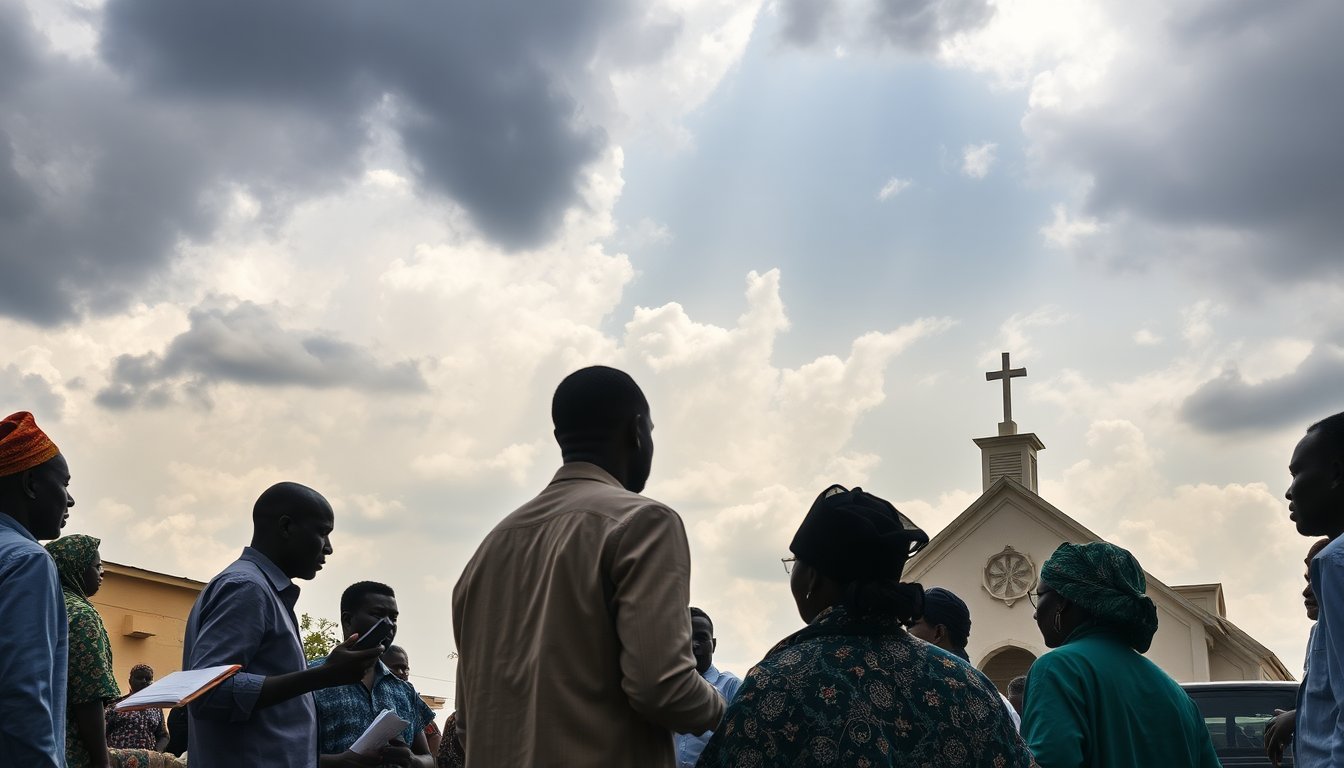Table of Contents
In a significant escalation of rhetoric, U.S. President Donald Trump has instructed the Pentagon to prepare for potential military intervention in Nigeria. This decision follows his ongoing criticism of the Nigerian government’s perceived failure to address the rising persecution of Christians in the country. Trump’s remarks come amid increasing international concern regarding religious freedom in the region.
Trump’s alarming ultimatum
On a social media platform, Trump stated, “If the Nigerian government continues to allow the killing of Christians, the U.S.A. will immediately stop all aid and assistance to Nigeria.” He expressed a willingness to engage militarily, promising a swift response against what he described as Islamic terrorists responsible for the violence. This stern rhetoric suggests that the U.S. may take aggressive measures to safeguard religious minorities in Nigeria.
Nigerian government’s response
Nigerian President Bola Ahmed Tinubu promptly rejected former President Donald Trump’s claims regarding religious intolerance in Nigeria. He emphasized that, “Religious freedom and tolerance are central to our national identity and will remain so.” This statement underscores Nigeria’s commitment to safeguarding the rights of all citizens, regardless of their faith, and highlights the constitutional protections against persecution.
Context of religious tensions in Nigeria
Nigeria, with a population of about 220 million, has a nearly equal distribution of Christians and Muslims. This demographic reality contributes to a complex landscape of religious and ethnic tensions. The country faces numerous security challenges, notably from extremist groups like Boko Haram, which advocate a radical interpretation of Islam and have also targeted Muslims considered insufficiently devout.
The violence in Nigeria extends beyond religious motivations. It arises from a combination of factors, including resource scarcity, conflicts between farmers and herders, and ethnic rivalries. This complexity complicates the narrative, as it is inaccurate to frame the situation solely as a persecution of Christians; many victims of the violence are Muslims.
Expert insights on the conflict
Analysts highlight that while Christians face targeted violence, the majority of casualties in armed conflicts are predominantly among the Muslim populations in northern Nigeria. These regions endure significant violence, challenging the perception that only Christians are in danger.
Kimiebi Ebienfa, a spokesperson for Nigeria’s Ministry of Foreign Affairs, emphasized the government’s commitment to protecting all citizens, regardless of their religious beliefs. He stated, “The Federal Government of Nigeria will continue to defend all citizens, irrespective of race, creed, or religion.” This position reflects the nation’s broader aim of embracing its cultural and religious diversity.
U.S. policy and implications
The U.S. State Department previously designated Nigeria as a country of particular concern due to systemic violations of religious freedom. This designation encompassed various abuses, not limited to attacks against Christians. However, this label was lifted, a decision analysts viewed as an effort to improve U.S.-Nigeria relations following Secretary of State Antony Blinken’s visit.
Former President Trump’s recent threats have reignited these concerns, underscoring the complexities of international relations where religious rights intersect with geopolitical interests. The evolving situation raises questions about the future of U.S.-Nigeria relations and the broader implications for religious freedom in Africa.


